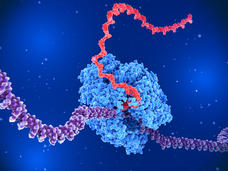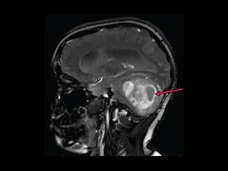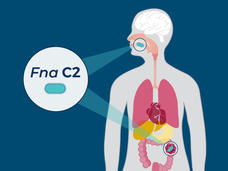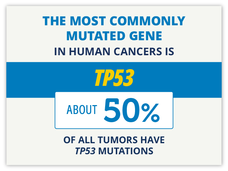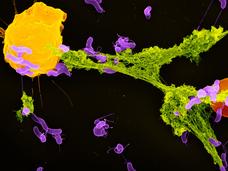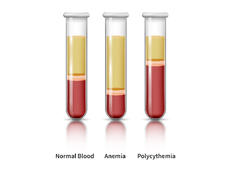Cancer Currents: An NCI Cancer Research Blog
A blog featuring news and research updates from the National Cancer Institute. Learn more about Cancer Currents.
-
Experimental mRNA Vaccine Hints at Potential Against Glioblastoma
Recent results from several small clinical trials have suggested it may be possible to develop an effective immunotherapy for glioblastoma. Among them are findings from a four-patient trial testing a unique type of mRNA cancer vaccine.
-
Anal Cancer Advances Open Door to Screening and Prevention
A recent study showed that removing precancerous anal lesions can prevent anal cancer. Scientists are now studying how best to screen people at the high risk of anal cancer, including those with HIV, for these lesions.
-
Spurred by Survivors, Researchers Are Revisiting Cancer Drug Doses
When it comes to cancer drugs, researchers are moving away from a paradigm called the maximum tolerated dose. Instead, they’re focusing more on identifying doses that produce fewer side effects but are still effective against a person’s cancer.
-
Leading Change in Cancer Clinical Research, Because Our Patients Can’t Wait
Reshaping the cancer clinical trials infrastructure to overcome key bottlenecks will involve embracing technology and collaboration, and inviting innovation, explain NCI Director Dr. W. Kimryn Rathmell and NCI Special Advisor Dr. Shaalan Beg.
-
Tovorafenib Approved for Some Children with Low-Grade Glioma
FDA has granted an accelerated approval to tovorafenib (Ojemda) for kids and teens who have low-grade glioma with changes in the BRAF gene. In a small clinical trial, the drug shrank or completely eliminated tumors in nearly 70% of patients.
-
Pembrolizumab Is First Adjuvant Therapy to Improve Overall Survival in Kidney Cancer
In a large clinical trial, treatment with pembrolizumab after surgery helped people with kidney cancer live longer than those who got a placebo and standard monitoring. The findings mark the first time an adjuvant treatment for kidney cancer has improved survival.
-
New Approach May Help People with Cancer Better Manage Depression, Pain, and Fatigue
Assessing and offering people with cancer stepped collaborative care may help better manage symptoms of depression, pain, and fatigue than the standard referral to providers for treatment, according to a recent study.
-
Blood Test Accurately Detects Early-Stage Pancreatic Cancer
In a new study involving nearly 1,000 people, a liquid biopsy accurately detected early- and late-stage pancreatic cancer. When paired with a test for the protein CA19-9, the combination accurately identified 97% of people with early-stage disease.
-
Alectinib Approved as an Adjuvant Treatment for Lung Cancer
FDA has approved alectinib (Alecensa) as adjuvant therapy for people with lung cancer who have ALK-positive tumors. In a clinical trial, alectinib helped people live longer after surgery without their cancer returning than chemotherapy.
-
FDA Approves Trastuzumab Deruxtecan for Any HER2-Positive Solid Cancer
Trastuzumab deruxtecan (Enhertu) can now be used to treat any advanced solid cancer that produces high levels of the protein HER2 (HER2-positive tumors). FDA’s accelerated approval was based on findings from three clinical trials.
-
Q&A: Learning About the Cancer Care Challenges LGBTQ+ People Face
Gwendolyn Quinn, Ph.D., a health psychologist at NYU Langone Health Perlmutter Cancer Center, discusses the challenges faced by sexual and gender minority people being treated for cancer and ways to address them.
-
LGBTQ+ Voices: Listening to Sexual and Gender Minority People Affected by Cancer
LGBTQ+ people, also known as sexual and gender minorities (SGM), with cancer may face challenges that non-SGM people do not face. The breadth and depth of these disparities aren't well known, but there’s growing research on the challenges this diverse group faces.
-
Approval of Elahere Expands Treatment Options for Some Advanced Ovarian Cancers
FDA approved mirvetuximab soravtansine-gynx (Elahere) to treat people with advanced, platinum-resistant ovarian cancer whose tumors overproduce a protein called FR-α. The full approval was based on the results of a large, randomized trial called MIRASOL, which showed Elahere improved survival for these people.
-
Scientists Link a Single Type of Bacteria to Colorectal Cancer
NCI-funded researchers have pinpointed a single type of the bacterium F. nucleatum that appears to fuel the development and growth of colorectal cancer. In mice, the bacterium, Fna C2, appeared to cause more adenomas to form in the large intestine and it was often found in human tumor samples.
-
Studies Assess Impact of Cancer Risk-Reduction Measures for People with BRCA Changes
For women with inherited changes in the BRCA1 or BRCA2 genes, regular MRI scans and undergoing a surgery called a salpingo-oophorectomy appear to lower their chances of dying from breast and ovarian cancer, according to results from two studies.
-
Drug Combination May Have Potential for Cancers with TP53 Mutations
Although TP53 mutations help drive the growth of most cancers, there are no FDA-approved therapies that target altered p53 proteins. Now a drug combination has shown promise in mice and is being tested in a clinical trial.
-
Stress-Induced Immune Changes May Help Cancer Spread
Stress-induced hormones called glucocorticoids can cause biological changes—in the form of sticky traps called NETs—that help create hospitable environments for cancer cells to form metastatic tumors, according to new research done largely in mice.
-
Rusfertide Nearly Eliminates Need for Phlebotomies to Treat Polycythemia Vera
Adding rusfertide to treatment for polycythemia vera cut phlebotomy rates from nine to less than one per year in a recent clinical trial. The finding may improve the quality of life for those who manage the blood cancer with frequent blood draws.
-
Simple Hysterectomy May Expand Treatment Options for Early-Stage Cervical Cancer
For some people with early-stage cervical cancer, a surgical procedure called a simple hysterectomy may be a safe and effective alternative to treatment with a radical hysterectomy, results from the SHAPE trial show.
-
From Awareness to Action: Putting Cancer Disparities in the Rearview Mirror
Eliminating disparities will require the efforts of people from across a broad spectrum of scientific research, according to leading experts, and must include working in concert with people and organizations in the community.

